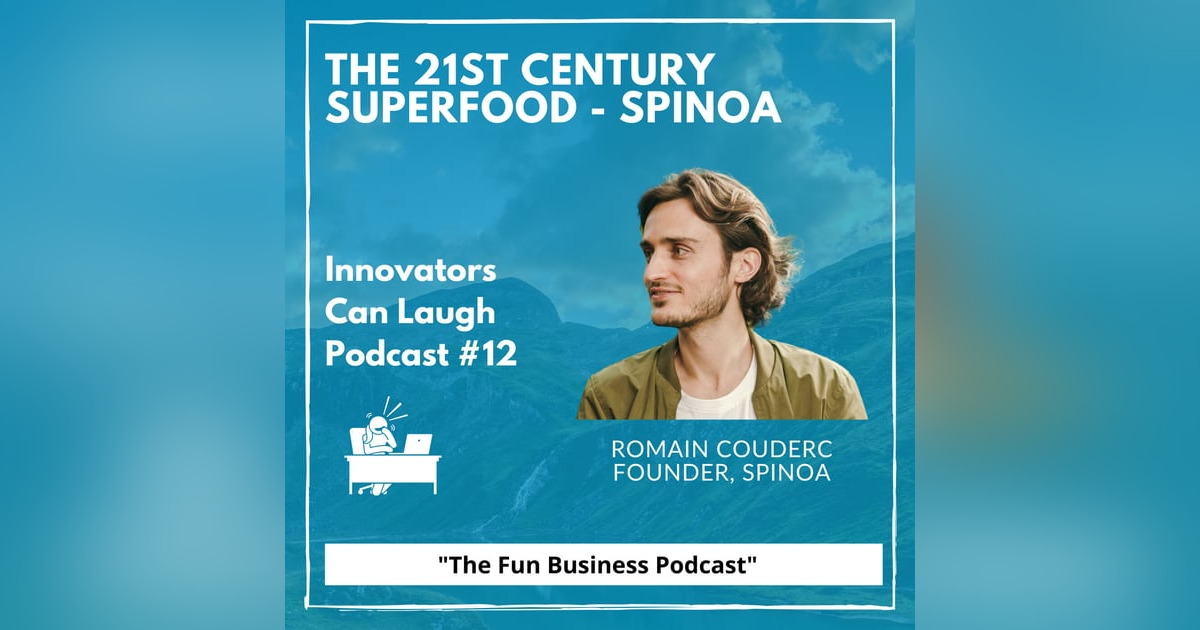July 14, 2021
From Marseille to Tehran and back to Bucharest, Romain Couderc is cultivating what the United Nations declared the food of the future

Frenchman Romain Couderc calls Romania home and has launched a purpose-driven food company - Spinoa. The foods are innovative and nutrient-dense while also having a low carbon emission.
In this episode of Innovators Can Laugh, I sat down with Romain Couderc, founder of Spinoa. 5 years ago he traveled on bike, through Turkey, Iran, India, Indonesia, and Cambodia meeting people who are implementing innovative solutions when it comes to social challenges regarding food, energy, and ecology. Inspired, he's bringing that innovation to Romania.
Show highlights:
- 5:19 – Visit to Madagascar
- 11:54 – how Romania has a strong cultural link to France
- 12:31 – when he first arrived in Bucharest (hint, he took a wrong bus)
- 13:43 – 13 month trip on a bicycle
- 14:48 - I ran and Turkey were some of the safest places they traveled through
- 15:00 – how people in the villages fought amongst eachother to welcome and have him stay in their homes
- 20:49 - The food that the United Nations declared the food of the future
- 22:26 Where he discovered spironila in Bangkok
- 26:20 the beneficial effects of spironila and yogurt











